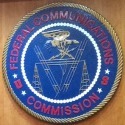
The FCC is considering another set of rule changes aimed at allowing wireless providers to install network equipment throughout the US more easily. However, the topic is yet again positioning industry against some city officials, who argue the proposed rules contravene local authority.
The FCC's proposed rules "would likely allow cellular network providers to install antennas, including 5G equipment, on private property without notifying a local agency or being subject to local community control," wrote the City of Nevada in a recent filing to the FCC.
Other city officials largely agreed, arguing that the FCC's proposed rules overstep the agency's authority and represent a federal handout to wireless providers. "The beneficiary [of the rules] is some far off corporate entity," and not local residents and businesses, wrote a wide-ranging group of local officials including the US Conference of Mayors and cities from Dallas to Boston to Fountain Valley, California, in a filing to the FCC.
Of course, the wireless industry doesn't see things that way. "CTIA appreciates the commission’s commitment to re-examining legacy regulations, such as the OTARD Rule, that may impede wireless infrastructure deployment," wrote the association -- the US wireless industry's primary lobbying group -- in a filing to the FCC. "Updating such rules to recognize the rapid evolution of wireless networks would enable the Commission to advance the public interest by lowering regulatory barriers that impede the infrastructure that is essential for consumers to receive the benefits of advanced wireless services."
At issue are the FCC's "Over-the-Air-Reception Devices" (OTARD) rules, first instituted more than two decades ago, that the agency said are designed to protect a property owner's right to install, maintain or use "an antenna to receive video programming from direct broadcast satellites, broadband radio services and television broadcast stations." The wireless industry -- including companies looking to provide fixed wireless internet services -- are hoping for changes that would specifically add wireless mesh networks, including hub-and-spoke wireless network designs, into the rules. As the Wireless Internet Service Provider Association (WISPA) wrote to the FCC, "the Commission appropriately seeks to modernize its OTARD rule so that the zoning laws and homeowners’ association restrictions can no longer prohibit hub and relay antennas at residences. This action would be consistent with the intent of the OTARD rule, which was designed to ensure that consumers have access to a broad range of video programming services, and to foster competition among providers."
If the changes are enacted, they could provide a serious boost to 5G providers like AT&T and Verizon as well as startups like Starry, which is in the midst of building a fixed wireless internet service in some of the biggest markets in the US. "Starry estimates that if our base stations are covered under OTARD as proposed … we would be able to pass more than 1 million additional households with a gigabit-capable signal this year alone," the company wrote to the FCC.
This isn't the first time that the FCC has considered rule changes aimed at speeding up the deployment of wireless network infrastructure while facing opposition from some local officials. For example, the FCC last year passed rules that set limits on the fees and review periods that cities could apply to wireless network operators seeking to install small cells for network densification and 5G.
According to CTIA, the FCC's proposed OTARD changes would help wireless providers install 5G more quickly -- the same argument the association applied to the agency's small cell rules. "Consumers’ increasing reliance on wireless networks for Internet access, video programming, and other services warrants an examination of the OTARD Rule to explore the inclusion of connecting antennas. Such a step has the potential to promote the national policy priority of ubiquitous, robust broadband, video, and 5G services," the association wrote.
— Mike Dano, Editorial Director, 5G & Mobile Strategies, Light Reading | @mikeddano
About the Author(s)
You May Also Like











